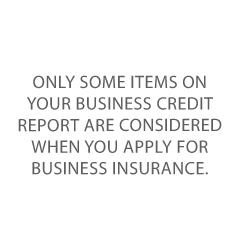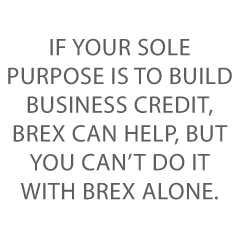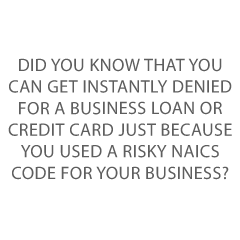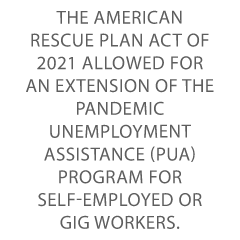Get Business Credit for the Gig Economy
The gig economy is a booming market. With more and more people working as independent contractors, entrepreneurs, or freelancers, many are looking for ways to streamline the process of securing business credit. In this blog post we’ll discuss how you can use business credit cards to speed up your way to success in the gig economy.
The Gig Economy and Business Credit
Business credit is good for any type of business. You don’t have to be a large company. And even gig economy workers can start businesses.
What is the Gig Economy?
The gig economy means jobs for a short-term engagement, for a specified time, say, 6 weeks.
Temping is nothing new, but now it’s on steroids. In a gig economy, temporary, flexible jobs are commonplace. Companies tend to hire independent contractors and freelancers, versus full-time employees. At times, this can be difficult for workers due to less employment stability. Working conditions aren’t always the best.
Gig Workers Going in a Different Direction
Workers for places like GrubHub, DoorDash, Uber Eats, Relay, GoPuff, and Instacart might not want or be able to unionize or wait for legislation or otherwise try to change their working conditions. What’s the solution? Become your own business!
How Do You Become Your Own Business When You’re Just One Gig Worker?
If a car sharing service doesn’t say you’re an employee, then you can set yourself up as a corporation on an LLC. Yes, even a single person can do either. By delivering as a corporation and not an individual, you can build business credit.
Building Business Credit
Incorporating is the only way to go (chances are, you will want to start an S corporation and not a C corporation). It creates a separate business entity which can help give you a degree of tax and liability protection. But at the very least, it’s highly likely that your insurance company will still ding your personal auto insurance, if you get into an accident while driving.
Why Create an S Corporation?
It will carry lower risks. But owners must report business profits on their personal tax returns. However, you can save on Social Security and Medicare taxes. An S Corporation owner has protection from personal liability for the corporation’s business decisions or actions. Corporate decisions can include whether to take a certain delivery job at all.
You pay taxes only on the money you earn from the business, recorded as personal income. The business itself is not taxed. Since you’re both an owner and an employee, you pay taxes based only on your compensation. Hence you don’t pay Social Security or Medicare twice, like owners of unincorporated businesses must.
Why Create an LLC?
A limited liability corporation carries lower risks. But business profits go on your personal tax returns, which can result in you paying high taxes. You also pay an employment tax on the net income of the business.
An LLC isn’t a separate structure (per the IRS). Yet as an LLC member you have protection from personal liability for the company’s business decisions or actions. If the LLC goes into debt or is sued, your personal assets are usually exempt. LLCs tend to be for groups of professionals, like doctors’ practices and law firms.
Why Not Both?
You can create an LLC and have it become the sole shareholder of an S corporation. Get the benefits of an LLC’s informality, and the tax benefits of an S corporation. It is best practices to talk to a professional before making either move. For business credit building, becoming an S corporation is the way to go. The only question is whether its sole shareholder is you or an LLC.
Fundability for the Gig Worker
Fundability is the ability of your business to get funding. You’ll need (among other things):
- An EIN from the IRS
- A D-U-N-S number from Dun & Bradstreet
- An NAICS code (485310—Taxi Service or 485320—Limousine Service will work)
- A separate business bank account
Most of the credit providers we’re listing today will require all of these.
Gig Economy Business Credit
A driver’s expenses include:
- Fuel and maintenance
- Possibly buying a vehicle (if yours breaks down or you want a separate one just for your gigs)
- Registration fees and taxes
- Phone (hardware, purchased apps if necessary, data plan)
- Computer (to best manage all expense figures, etc.)
Did you know you can buy ALL these things with business credit?
Building Gig Worker Business Credit
Your driving business doesn’t start off with good business credit already built. Orderly, speedy building business credit means getting vendor accounts. Starting with vendor credit accounts is a proven way to start building business credit.
Building Business Credit: The Process
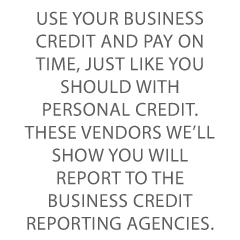 Use your business credit and pay on time, just like you should with personal credit. These vendors we’ll show you will report to the business credit reporting agencies. And you’ll build a good business credit score. These trade lines are creditors who will give you starter vendor credit when you have none now. And, they’ll report positive payment experiences to the business CRAs. So use the credit, pay back what you used, and the account goes on report to Dun & Bradstreet, Experian, or Equifax.
Use your business credit and pay on time, just like you should with personal credit. These vendors we’ll show you will report to the business credit reporting agencies. And you’ll build a good business credit score. These trade lines are creditors who will give you starter vendor credit when you have none now. And, they’ll report positive payment experiences to the business CRAs. So use the credit, pay back what you used, and the account goes on report to Dun & Bradstreet, Experian, or Equifax.
Once reported, then you have trade lines, an established credit profile, and an established credit score.
You MUST have 3 or more vendor accounts reporting to move onto more credit with higher limits and better terms, more reporting accounts are even better. It will take 30—90 days for those accounts to report, 60 days on average. Do NOT apply for tier 2 credit without having 3 or more accounts first.
Using Business Credit Vendors
Check out three of our favorite starter vendors to help your driving business:
All three come from Wex.
76
Phillips 66 Company owns 76. This card reports to: D&B and Experian. Before applying for multiple accounts with WEX Fleet cards, make sure to leave enough time in between applying so they don’t red-flag your account for fraud.
To qualify, you need the following:
- Business must be in good standing with the applicable Secretary of State
- EIN
- Company address matching everywhere
- D-U-N-S number from Dun & Bradstreet
- Your business license (if applicable)
- A business bank account
- Business phone number with a listing on 411
Your SSN is necessary for informational purposes. If concerned they will pull your personal credit talk to their credit department before applying. You can give a $500 deposit instead of a personal guarantee if you’ve been in business under a year. Apply online or over the phone. Terms are Net 15. Use at any P66, 76, or Conoco fueling location.
Wex Fleet
Wex reports to Experian and D&B. They offer universal fleet cards and universally accepted business fleet cards with a rewards program. Before applying for multiple accounts with WEX Fleet cards, leave enough time in between applying, so they don’t red-flag your account for fraud.
Wex Fleet Card
If you’re not approved based on business credit history, or been in business for at least a year, then you must give a $500 deposit or a PG. Apply online or over the phone. Terms: Net 15 (Wex Fleet Card), Net 22, or revolving (Wex FlexCard).
To qualify, you need:
- Entity in good standing with Secretary of State
- EIN
- Business address (matching everywhere)
- D-U-N-S number
- Business license (if applicable)
- A business bank account
- Business phone number with a listing on 411
Marathon
Marathon Petroleum Company provides transportation fuels and specialty products supporting commercial, industrial, and retail operations. This card reports to Dun & Bradstreet and Experian. Remember: before applying for multiple accounts with WEX Fleet cards, leave enough time in between applying so they don’t red-flag your account for fraud.
To qualify, you need:
- Entity in good standing with Secretary of State
- EIN
- Business address (matching everywhere)
- D-U-N-S
- Business license (if applicable)
- A business bank account
- Business phone number with a listing on 411
Your SSN is necessary for informational purposes. If concerned they will pull your personal credit talk to their credit department before applying. You can provide a $500 deposit instead of using a PG if you’ve been in business less than a year. Apply online or over the phone. Terms are Net 15. Let’s move onto what’s called fleet credit.
Fleet Credit
Fleet credit comes with and after starter vendors. Use it to:
- Buy fuel
- Maintain vehicles of all sorts
- Repair vehicles
Even if you just have one vehicle, you can still benefit. Fleet credit works for everything from luxury cars to minivans. These are often gas credit cards.
There may be a minimal time in business requirement. If your business can’t meet this requirement, you may be able to, instead:
- Offer a personal guarantee or
- Give a deposit to secure the credit
Now that you’ve got cards to support a vehicle, and your business credit is looking good, it’s time to look at vehicle financing to buy a vehicle!
Vehicle Financing
Vehicles financing is a great way to get a vehicle ASAP. With a fleet car, choices are usually buying or leasing. Providers include banks like Bank of America or the financing arm of a manufacturer, like Chrysler Capital.
Using Business Credit for Vehicle Financing
You can even finance a vehicle purchase or lease through our Business Credit Builder. These offers are in Tier 4. So they have certain requirements that business credit beginners just won’t be able to meet. Lenders want to see that you have the income to support the purchase. Consider Ford Commercial Vehicle Financing.
Ford Commercial Vehicle Financing Via Credit Suite
Ford offers several commercial vehicle financing options. These include loans, lines, and leases to actual business entities. This is not for sole proprietorships. Get a loan or a lease.
Ford may ask for a PG if you do not get approval on the merit of your application. Apply at the dealership. Ford reports to D&B, Experian, and Equifax.
To qualify, you need:
- Entity in good standing with Secretary of State
- EIN
- Business address- matching everywhere
- D-U-N-S
- Business license (if applicable)
- A business bank account
- Strong business credit history
You must have a good Experian business credit score.
Ally Car Financing Via Credit Suite
Ally provides personal financing. But they will also report to business credit bureaus. If your business qualifies for financing without the owner’s guarantee, you can get financing in the business name only. Ally will report to D&B, Experian, and Equifax.
Ally Car Financing: Ally Commercial Line of Credit
To qualify, you need:
- Entity in good standing with Secretary of State
- EIN
- Business address- matching everywhere
- D-U-N-S
- Business license (if applicable)
- A business bank account
- Bank reference
- Fleet financing references
If you use a personal guarantee, they will not report to the personal credit bureaus unless the account defaults.
Ally Car Financing: Ally Commercial Vehicle Financing
Get a lease or a loan. To qualify, you need most of the same things as you need for an Ally Commercial Line of Credit, except for
- A bank reference
- Fleet financing references
There is no minimum time in business requirement. Apply in person only, dealer will advise if approved or PG is necessary.
One More Thing About Vehicle Financing
With commercial vehicle financing, business owners may have to personally guarantee vehicle loans. If you are a co-borrower, the loan will tend to report to your personal credit report. Starting off by giving a personal guarantee means you can get money and get your vehicle now instead of later.
When you provide a personal guarantee, you are adding your Social Security number to the application. So expect a hard inquiry. You’re also adding the details of your personal income to the application.
No PG (Personal Guarantee) Financing
With no PG financing, you can get higher limits and better terms. Continue to build exceptional business credit and pay your bills on time. In general, the following will eliminate the need to provide a personal guarantee for this type of financing:
- good business credit
- a decent amount of time in business or
- good personal credit
Much like with any other kind of business borrowing, the more assurances you can give the lender, the better. And with well-built business credit, you’ve got a hugely positive assurance to provide.
Takeaways
Gig economy workers can build business credit to stabilize their employment situation and plan for the future. Use business credit to finance your delivery job in the gig economy and make it easier and more affordable to work as a flexible gig worker.
The post Speed Your Way to Success: How to Find Business Credit for Your Gig Economy Job appeared first on Credit Suite.
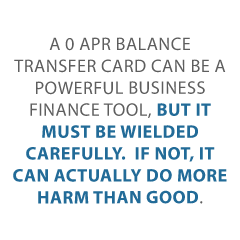
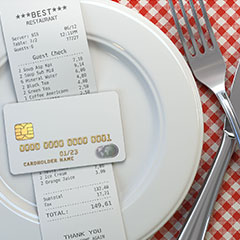 Mechanics Bank Visa
Mechanics Bank Visa

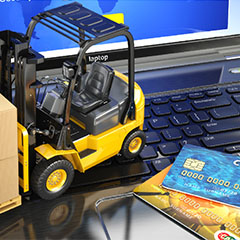
 Bremer Bank Platinum Card
Bremer Bank Platinum Card




